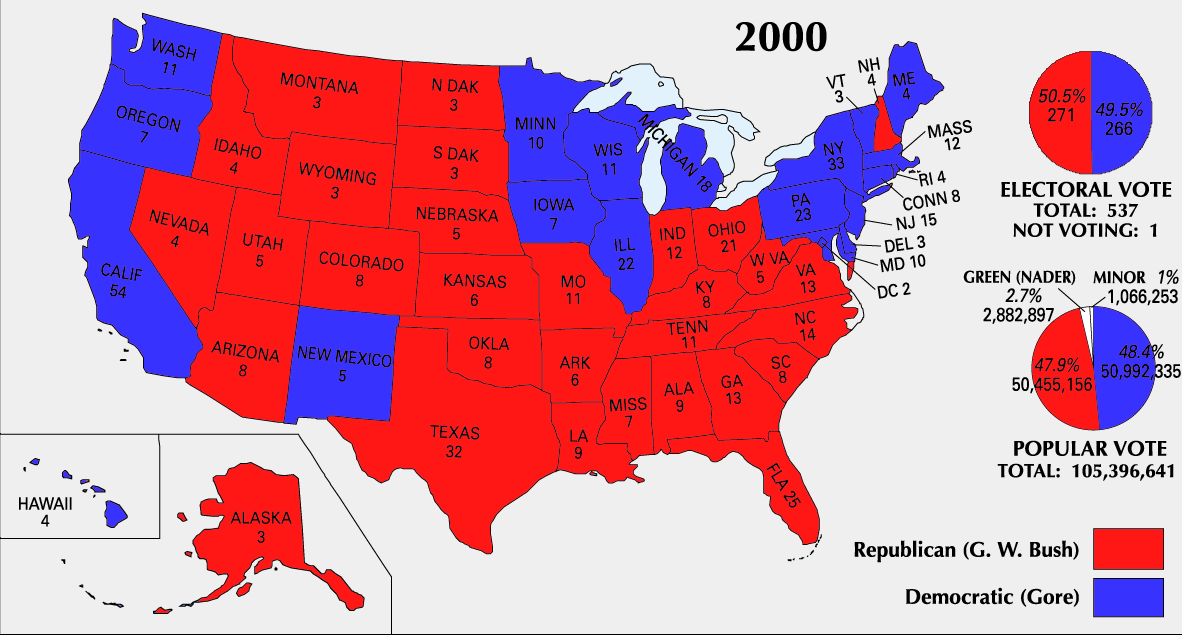Some Background and Context
James Carville, Democratic political strategist for Bill Clinton came up with this slogan to help keep Clinton campaign insiders "on message" as their candidate stumped against President George H.W. Bush. Republicans have employed it somewhat this Fall against Democrats. Whether or not this strategy tracks with voters remains to be seen. However, the real story here is that overspending has been going on for decades under both Republican and Democratic administrations.
The History of Spending
Let's begin by looking at the way US government spending breaks down. It doesn't take much to see the problem. Just look at three snapshots of spending (2012, 2015, 2017) and you'll see a dangerously quick moving trend...
You'll note entitlements (i.e. government benefits paid out to citizens - namely Medicare, Medicaid, and Social Security) are growing steadily. This reflects the population distribution, where the older outnumber the younger considerably. In three years, these entitlements went from accounting for 41% of federal spending to 49%. That represents a $119 billion increase. Over time, this will make these entitlements unsustainable.
See the following video for a quick summary.
http://www.youtube.com/watch?v=pfZyffw7U6E
See the following video for a quick summary.
http://www.youtube.com/watch?v=pfZyffw7U6E
Simply put, the nature of the changing population and resulting commitments in entitlement spending will soon put the US government in a position where the amount of money spent in these areas ALONE will exceed ALL the money the federal government takes in.
At the same time, the federal government continues to borrow more and more money daily in order to sustain its spending which results in higher and higher budget deficits and more and more debt.
The Debt Limit: Made Simple
These two forces - the growth of entitlements and the growth of deficits and debt will eventually make it impossible for the government to meet either its entitlement obligations or any other public needs like infrastructure.
As John F. Kennedy noted in "Profiles in Courage," ultimately the public gets the government it deserves. Political leaders are unprepared to commit themselves to real solutions because they fear that those affected by any cutbacks will take it out on those who presented the solutions. And no one wants to tell a segment of the public that they can't have what others have had up until now. The pressure to be liked and the pressure to be re-elected prevails over the pressure to face reality.
Another reality is that as we have become wealthier in the western world, we have become more materialistic and convinced that individual "needs" are higher and require greater expense. One outcome of this is a declining birth rate -- people are simply having less children.
While there are many factors that can have an impact on the birth rate (see the article link below), there is no question that some make the decision to have children later or perhaps to have less children because they feel that to do otherwise would not allow them to satisfactorily meet either their children's or their own needs.
https://www.moms.com/cdc-says-not-having-enough-kids/
https://www.insider.com/us-fertility-rate-hit-new-low-in-2017-2019-1
https://www.insider.com/us-fertility-rate-hit-new-low-in-2017-2019-1
The overall financial impact of a reduced birth rate is that there will be less public support to pay for entitlements -- something that the architects of these programs might not have foreseen.
See the following link for a more detailed analysis of the history of entitlement spending.
Another uncontrolled factor is the fact that people are simply living longer, committing the government to more payouts than previously. When Social Security was implemented in the 1930's, life expectancy was 58 for men and 62 for women. With eligibility being set at 65, many people were no longer alive to collect this entitlement.
See the link below for a review of how life expectancy is changing and the relative impact on Social Security.
http://www.ssa.gov/history/lifeexpect.html
See the link below for an overview of the Social Security debate in the United States.
http://en.wikipedia.org/wiki/Social_Security_debate_in_the_United_States
Often, particularly over the last number of years, military spending is seen as the overriding cause of government deficits and debt. However, while a significant amount of money has been spent for security of the homeland and fighting terrorism abroad, more has been spent on entitlements and entitlement spending will continue to grow in a way that military spending never has.
Another way to look at the numbers is to consider government spending as a percentage of gross domestic product -- that is all of the wealth created from all national economic activity in a given year.
More Recently
Clearly, there are choices that will need to be made over the next number of years in order to avoid a financial meltdown unlike anything that has ever been seen in world history. It is important to remember that the American government is a partnership between the Congress (made up of the House and Senate) and the President. For example, under Republican Ronald Reagan, debt climbed, however Democrats generally controlled Congress. The Democrats in Congress increased social spending. Reagan increased military spending due to the Cold War. Together, they increased the annual deficit and consequently, the national debt, although Reagan wanted to reduce the size of government and spending in general. In the end, Reagan's economic policies which led to the longest peacetime period of growth in American history created enough revenue that tough political choices could be avoided -- for the time being.
At the end of the Clinton era, a Democratic president (Bill Clinton) and a Republican congress (Newt Gingrich and Dennis Hastert served as Speakers of the House while Bob Dole and Trent Lott served as Senate Majority Leaders for the majority of the Clinton presidency) had their challenges, but in the end actually created surpluses in excess of 200 billion dollars a year. However, these surpluses were achieved by dipping into the Social Security trust fund, which was money already committed for that purpose.
The George W. Bush Era
The 2000 election between Texas Governor George W. Bush and Clinton's Vice President, Al Gore came down to a choice between how the surpluses would be spent. Gore promised to spend more government money on environmental causes and other social spending. Bush promised to cut taxes and return the surplus to those who had earned it -- the American taxpayer. Otherwise, the world seemed relatively peaceful to Americans, so foreign policy was not a major consideration for voters.
September 11 would change all that. President Bush, who was almost entirely focused on domestic issues such as education and growing the economy through tax cuts and reducing regulatory burdens, now found himself as a wartime president. After 9/11, President Bush worked together with the firm support of Democrats who controlled Congress to make America safer and strike out aggressively against Islamofascism.
These initiatives included, but were not limited to:
- Invasion of Afghanistan (House vote: 420-1 in favor; Senate vote: 98-0) Cost: $171.7 billion between 2001-2008
- Invasion of Iraq ( House vote: 297-133 in favor; Senate vote 77-23
39% of House Democrats, or 82 members joined with Republicans on the vote and 42% of Senate Democrats, or 21 senators supported the authorization) Cost: $13 billion initial outlay - plus $9 billion a month or roughly $589.3 billion between 2001-2008
- Creation of the Department of Homeland Security (House vote: 295-132 in favor; Senate vote: 90-9) Cost: $385 billion between 2001-2007
- Passage of the Patriot Act (House vote: 357-66 in favor; Senate vote: 98-1) Cost: $340 million between 2001-2008
- Prescription drug coverage for seniors - Medicare Modernization Act of 2003(House vote:220-215; Senate vote: 54-44) Cost: Roughly $740 billion between 2001-2007
- Economic Stimulus Act of 2008 Cost: $773 billion
So what happened to cause that economic crisis at the end of the Bush presidency anyways?
The Mortgage Crisis
http://www.youtube.com/watch?v=fPI8XFfBxHk
Even here, the analysts disagree. Liberals want to blame it on "capitalism run amok" -- essentially too much "deregulation" and conservatives want to blame the Democratic Party controlled Congress for ignoring requests from the Bush administration to look into the lending practices of government sponsored Fannie Mae (Federal National Mortgage Association - FNMA) and Freddie Mac (Federal Home Loan Mortgage Corporation - FHLMC), who were making loans to high risk clients.
The Obama Era
For the first two years of the Obama presidency, Congress was firmly in Democratic hands. The President was able to win favor for his agenda, which included a massive health care package and a stimulus plan that, by the President's own admission, had not produced "shovel ready" employment.
For the first two years of the Obama presidency, Congress was firmly in Democratic hands. The President was able to win favor for his agenda, which included a massive health care package and a stimulus plan that, by the President's own admission, had not produced "shovel ready" employment.
American Recovery and Reinvestment Act of 2009 Cost: $787 Billion (House vote:246-183); Senate vote: 60-38 - only three Republicans in the Senate supported the bill and none in the House)
There is no real idea of what the cost of health care legislation will be. Democrats claim that it will eventually reduce the debt, Republicans claim it is a major tax grab that will increase the debt and destroy the quality of the health care system.
The Congressional Budget Office, which is seen as a non-partisan agency of the government had initially projected that the ACA (Affordable Care Act also known as Obamacare) would reduce the deficit because it included major cuts to Medicare and new tax increases. However, recently the CBO has stated that because the interpretation of the law and its original provisions have been changed so many times since its original acceptance that there is not way to reliably predict the effect of the ACA on the deficit.
Here is an example of how the same information can be viewed differently, depending on your point of view:
CBO Quietly Drops Forecast That Obamacare Will Cut the Deficit
Obamacare Is (Still) Fiscally Responsible
So what is the ACA projected to cost anyways? According to a CBO report in March of 2015, it was expected that the federal government would spend significantly less on Obamacare than had been projected. Instead of $1.35 trillion in costs from 2016 through 2025, Affordable Care Act-related expenditures were expected to be $1.207 trillion, the CBO said.
Is President Obama the biggest spender in history or just more of the same and not that much different from other recent presidents? Depends on who you ask…
Read the following articles and see for yourself… We Report, You Decide
http://www.marketwatch.com/story/obama-spending-binge-never-happened-2012-05-22
http://www.washingtonpost.com/blogs/fact-checker/post/the-facts-about-the-growth-of-spending-under-obama/2012/05/24/gJQAIJh6nU_blog.html
http://www.forbes.com/sites/realspin/2012/09/03/yep-obamas-a-big-spender-just-like-his-predecessors/
http://www.forbes.com/sites/peterferrara/2012/06/14/president-obama-the-biggest-government-spender-in-world-history/
https://www.thebalance.com/us-debt-by-president-by-dollar-and-percent-3306296
Bottom line, the national debt under Obama climbed from 10 trillion to about 19.7 trillion dollars. The US also had its credit rating diminished and in polls near the end of Obama's presidency more than 65% of the population believed the country was on the wrong track.
http://www.nationaldebtclocks.org/debtclock/unitedstates
http://www.usdebtclock.org
The next elections will be about choices and consequences. Although both parties have a different narrative on the topic, the mathematical realities are not really debatable. The Trump Era is three years along now. It is still too soon to say what will happen to spending and revenue at this point. However, it is easy to see that the option of kicking the can further down the road will no longer be possible. The article below provides one opinion of how things are going in the Trump Era so far. The US national debt is now at 22 trillion dollars.
https://www.thebalance.com/trump-plans-to-reduce-national-debt-4114401
















